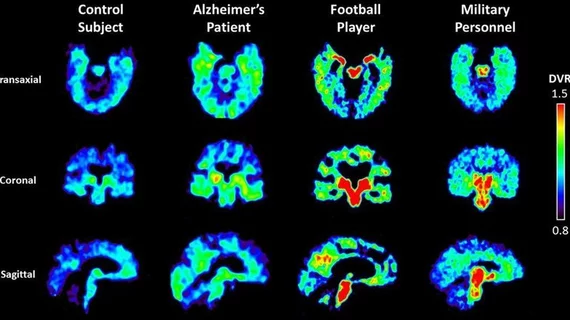PET diagnoses chronic brain injury in living patients, including military personnel
A new test that can diagnose chronic traumatic encephalopathy (CTE) in living patients with head trauma may pave the way for advances in diagnostic brain imaging, according to a July 18 article published by NPR.
The test, detailed in a study in the Journal of Alzheimer's Disease, broadens the understanding of CTE's effects by studying seven living military personnel—five veterans and two active duty—with PET brain scans for injuries and CTE-type symptoms.
"You've really got to have a living diagnosis scan in order to make much headway on understanding the disease [CTE]," study author Julian Bailes, MD, a neurosurgeon at Northshore University HealthSystem in Chicago, told NPR.
When comparing the PET scans with those from 15 retired professional football players who suffered from brain injuries, 24 Alzheimer's dementia patients and 28 healthy control subjects, researchers found scans of the military personnel showed similar patterns to the retired football players but differed from the Alzheimer's patients and controls subjects, according to NPR.
"We're still within the scientific process of trying to figure out where this test lands on the scale of being definitive," Bailes told NPR and said that their team still needs to figure out how it correlates with changes seen in the brain when people die.
Read NPR's entire article below:

